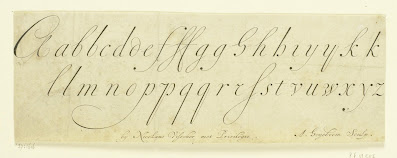Friday, 24 December 2021
Merry Christmas!
Sunday, 12 December 2021
Mea Culpa
Hubris.
One minute I'm crowing confidently about my rôle as resident barber about the casa.
The next, Dear Reader ... I'm sacked.
In truth, I did look dubiously at the electric clippers and thought it must have been ages since I'd wielded them as they looked, well, a bit unfamiliar in my hand.
For well they might when the 1/4 inch clipper guard wasn't in place.
It only took a goodly swipe up the back of Mr. P's head to realise my mistake.
Your Correspondent is now married to Yul Brynner.
Or Patrick Stewart.
I cannot decide.
Either way, I'm secretly pleased :)
Image credits: 1: via Pinterest; 2, 3: via Google
Sunday, 5 December 2021
Strange Visitors I
 |
| Channel-billed Cuckoo Hatching a Parasitic Plot H. Goodchild lithograph, 1919 |
_frontispiece.jpg) |
| Aristophanes Plotting more Plots |
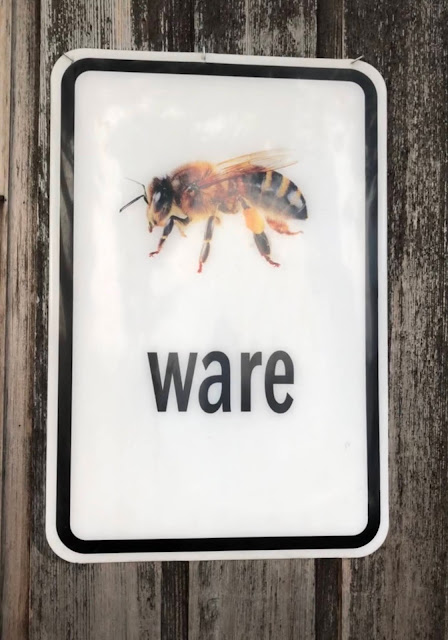 |
| Warning Sign of Summer |
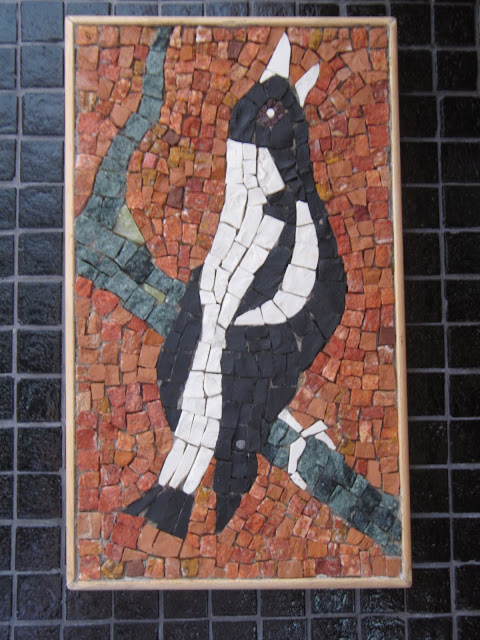 |
| The Australian Magpie - Favourite Bird Around These Parts L. Weiss mosaic, 2017 |
 |
| Birds Mobbing the Stage at the University of Cambridge H. G. Glindoni etching, 1883 |
Image credits: 1: Antique Print & Map Room; 2: Wikimedia Commons; 3, 4: Flying With Hands; 5: Wikimedia Commons
Saturday, 30 October 2021
A New Broom Sweeps Clean
 |
| Mad for Brushes! (Nota bene: Broom not seen) |
Spring has sprung again in this neck of the woods. While the Flying With Hands incumbent brush fetishist gets to make merry with the tools of the trade, there have been other unsolicited changes around the place, coming from some unlikely brooms. And I don't just mean the general spring cleaning of my web browser.
Viz.:
 |
| Opera is Serious |
This earnest Techno-Hausfrau-Geek left her spring cleaning calling card on my computer the other day. I call her, unimaginatively, Opera-Girl* and she always makes me larff merrily when I see her. Look at that face. She really takes her job very seriously, even if it is unsolicited.
No, I speak of the Scoundrel formerly known as my Local Bank, which, having been temporarily closed since last year, has decided to make it permanent. For my convenience and to make my life simpler, apparently. It was the final straw for me. After 26 years of loyal custom**, I have taken my business elsewhere. Namely online. For sure, the delight of a cheque book has gone, as is what I deem to be a true convenience, viz. a shoppe-front mere moments away, but my hand was forced. Nor have I looked back, for this revolution in my old ways has brought such vim and vigour to matters financial.
 |
| Behold the Vault |
The penultimate act which led to this tipping point had been the cessation of the safety deposit box facility. Can you imagine my surprise when the letter arrived, breathlessly announcing the exciting new changes to simplify my life further? After much gnashing of teeth, I booked a time slot and Mr. P & I trundled into the city to go down to the vault of a glorious heritage-listed former branch to clear it out (just my safety deposit box, not the vault in a heist, mind!)***
 |
| This hobbit door will probably pop up on Ebay soon enough - One Previous Owner, No Key :( |
As it transpired, there were only dead moths in it, as I'd forgotten that I'd emptied it of papers when we stopped taking merry jaunts across the globe. Sigh. Mr. P had never been allowed beyond Doctor No's hobbit door before so that made it a fun family outing****, and we went and had lunch in a café in the city, too, because we can now.
 |
| New Bread |
In the domestic sphere, where changes wrought are due to my own hand, the Lazy Girl Bread is now made with a combination of rye, wholemeal, buckwheat (such a handy use for buckwheat once bought for blinis) and white flour. White bread is now a thing of the past.
 |
| New Tea |
Black tea has been swapped out for a very delicate white/green tea combination. Nota bene the delicious biscuits delivered to our door by our downstairs neighbours, the Country Mice, who'd come to Town for a brief sojourn. We have lovely neighbours throughout the condominio!
 |
| New Hair |
Hairdressers are open again! I gave myself one bathroom cut during the year, which was deemed not the worst she'd seen, but was nearing waist-length when the hairdresser addressed its shortcomings on Wednesday.
Meanwhile, the bathroom will remain the venue for Mr. P's clipper cuts ad infinitum, for we have a nice little routine in the shower recess between the client (himself) and barber (myself), with the flourishing of an old sheet and a peg, some witty banter, a choice of music or not, and a comfortable stool. And with some care, clean sweeping with a broom (or trusty Dyson) isn't even needed for this fun job!
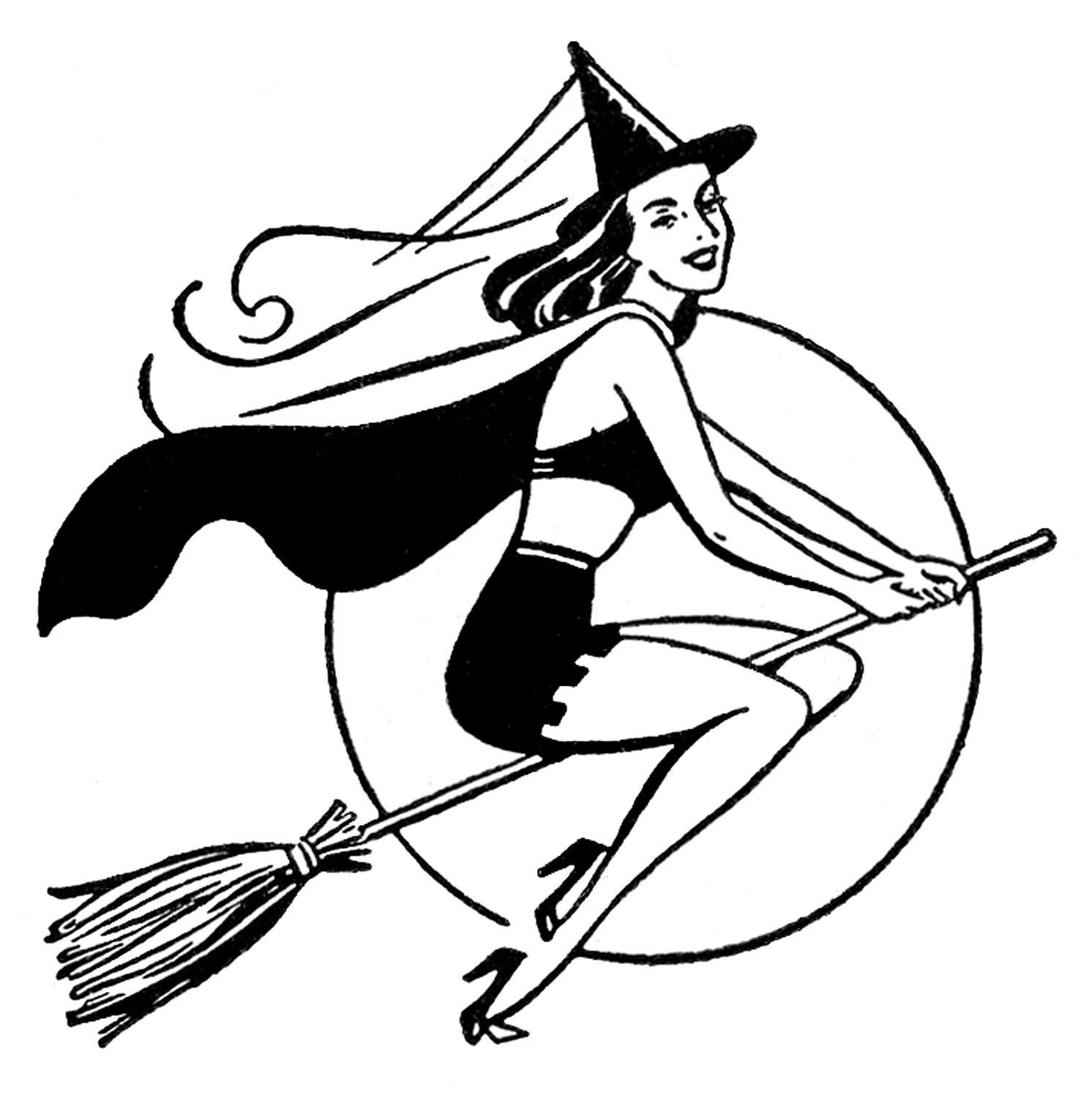 |
| Happy Hallowe'en! |
* If you don't use Opera as your web browser, you miss out on seeing her face pop up from time to time, as well as the joy of having a radically diminished number of also unsolicited advertisements cluttering up the place. Yes, Dear Reader, I do have the Girl Guide Badge for Unsolicited Advice.
** And turning a grudgingly tolerant eye to the numerous transgressions that are continually unearthed like scuttling slaters under an upturned rock and necessitate such delights as Banking Royal Commissions. It speaks volumes that the rather helpful telephone consultant did not even enquire why I was closing my accounts after all this time.
*** Oh, and the refundable key-deposit didn't apply anymore as it was the service that was closing! Scoundrels.
**** I have just read that a private security vault up the street from Doctor No's is offering to assist those disgruntled customers in hauling their loot up to a more state-of-the-art facility. The website has Chinese and Hindi translations. We saw some of these elderly future customers when went to collect the moth carcasses, waiting in the foyer with shopping trolleys!
Image credits: 1-7: Flying With Hands; 8: Graphics Fairy
Tuesday, 12 October 2021
Some Tasty Tidbits
 |
| The Pipistrellos know how to keep occupied Ravi Zupa screen print, Thrilling, 2020 |
Dear Reader, it has been utterly remiss of me to neglect the something-to-eat creed of this blog, so you must be positively starving by now! These neglectful tendencies do come from being thoroughly distracted by the cardboard box we've been stuffing ourselves in during these days of No Fun Allowed, for Thrills can always be found around the casa. Anyway, all that is officially behind us (again) as from today, so after a trip to the shoppes for some ingredients, I can now supply some tasty tidbits.
Behold, dinner tonight:
 |
| Chilli con Carne nota bene: Artist's Impression |
As ever, the finished result lacks the vibrant colouring of the suggested photographic rendering in the recipe book but experience informs us that we've made this many times and it's always delicious, so allowances must be made for what inevitably ends up on the plate. Unlike over at Dear Brother's place, we've not the Master Chef flourishes around here.
It was Mr. P's idea for chilli con carne. I'd had in mind a batch of Romanesque fagioli, and had been soaking some borlotti and cannellini beans for this purpose when Mr. P declared he wished otherwise. For added vits & mins, I tossed in some English spinach, and was able to use the leftover stock and dripping from some oxtail I'd slow-cooked in a bottle of red wine for an, ahem, beefed up macaroni & cheese last week. Also delicious!
Macaroni & cheese with oxtail is not the only variation on the nursery norm found around here, for it also occasionally gets made with crab meat when I want to get super fancy. (You can see where on the beast the oxtail purports to come from, in the illustration above.)
In other one-dish delights, the season for Brussels sprouts spaghetti carbonara is now over, for it is Spring in this neck o' the woods. Bucatini carbonara is another legacy recipe from Ol' Boyfriend Marco, but as the humble Brussels sprout is a brassica close to my heart, I/we adore this variation with sautéed shredded sprouts alongside the requisite cured porky bit* that is found kicking around the bottom of the fridge.
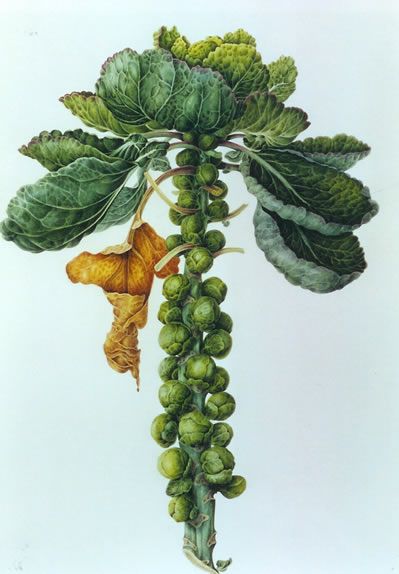 |
| The Humble Sprout, a.k.a. Pipistrello's Favourite Vegetable Christine Stephenson watercolour |
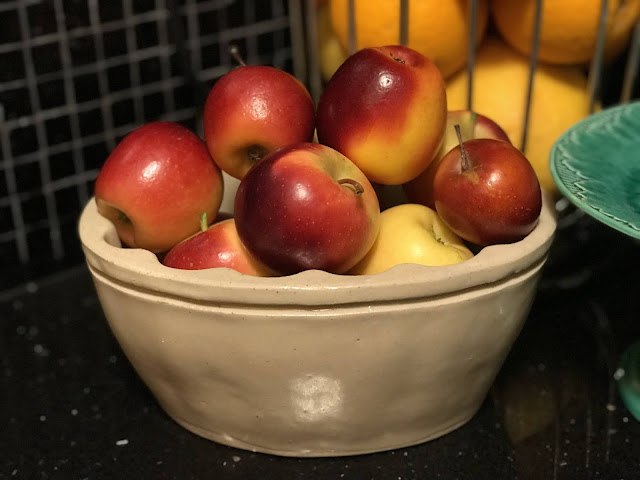 |
| Tiny little Rockits |
* I no longer pretend my home curing of a bit of pork belly is going to be bacon, for it always finishes up as a dead ringer for pancetta, which is more versatile in my book, anyway, and lasts an age if you forget it's there.
** Most likely hidden in socks or knickers, if the apocryphal tales are to be believed.
Image credits: 1: RaviZupa.com; 2, 6: Flying With Hands; 3: via Pinterest; 4: PaintingsOfPlants.com; 5: AllThingsSicilianAndMore.com
Saturday, 18 September 2021
And Another Thing
 |
| Lo! A two-for-one Deal: Danish Flag and Dutch Delftware Sand Holm, Still Life With Art Nouveau Ceramics [& idem], 1919 |
Carrying on from last week's Danish musing, Dear Reader, there were murmurings about things Dutch needing to be spoken of, suggesting perhaps Delftware and other products of their Golden Age. But the direction this post heads is toward a Documentary, viz., The New Rijksmuseum (2014)*
 |
| The Old Rijksmuseum, 1878 |
Amsterdam is another city Your Correspondent hasn't visited [woe!] but in lieu of this deficiency, I have become rather fond of the beguiling portal, the Rijksstudio, that is the digitised collection of its famous national museum, the Rijskmuseum. You can often find me there, rootling around looking for delicious images, usually as blog fodder. Such is the joy of the digital age!
Like many cultural institutions that have had to think up inventive ways to enrich the lives of us all in These Trying Times, the Pipistrello's local temple to artistic stuffs, the AGNSW, has been doing its bit in compensating for the cultural freeze, especially for those holding languishing memberships.
Imagine my delight when they recently sent out a link to watch a documentary film of the renovation of this Dutch National Treasure Chest. And so marvellous did this film prove to be, I watched it twice!
For why? Unexpected drama comes as ambition meets parochial and bureaucratic obstacles for the building to be renovated and the entrance reimagined. Aesthetic objections, a cyclists' union, a shocking resignation, high emotions and professional disappointments loom over the project as the months and years tick over.
Curators, who imagine with undisguised passion how their collections will be showcased, endear and infect us with their enthusiasm, living and breathing their speciality as they do (even literally for the live-in caretaker), are still yet fearful the project will succumb to ennui and their precious works become forgotten as the time passes.
Despite the outward signs of the project's highs and lows, quietly and without cessation the cleaners and restorers are busy busy on the million paintings, stucco, artefacts, you name it, in readiness for the eventual reopening of the museum that looms so large in the lives of all Amsterdam. And such a thorough going-over of everything and sufficient time passes that unknown treasure is even discovered within collections.
Like all Grand Designs, large or small, the whole exercise was beset by not only cost and deadline blowouts, but the peculiarly Dutch democratic process allowed for interference on a dramatic scale. All up, the museum was shut for a decade and the whole shebang cost half a billion euros.
Dutch filmmaker Oeke Hoogendijk was given a behind-the-scenes pass to chronicle this ambitious renovation project. Four hundred hours of footage was originally condensed into a two-part four-hour film, and then further cut down to this two-hour documentary. The result is a fascinating, gripping and mesmerisingly beautiful film. [I watched it twice, I tell you!]
 |
| This rather familiar lass now has a cheeky cupid behind her! Johannes Vermeer, Girl Reading a Letter by an Open Window, c. 1659 |
 |
| Officially: Militia Company of District II under the Command of Captain Frans Bannick Cocq a.k.a.: The Night Watch, Rembrandt van Rijn, 1642 |
Of course, for something completely wild in the art restoration sphere, the Rijksmuseum website has devoted a whole corner to "Operation Night Watch", showcasing the study and restoration of its centrepiece painting by Rembrandt, wherein artificial intelligence "learned" his painting style to digitally recreate the severed and lost outer edges.
And on that futuristic note, where AI does something delightfully unexpected, I'm now done with D.
* This is merely the official trailer found on the youtubes, but the documentary can be watched through various interweb links for free or small fee, depending on your location.
Image credits: 1: AskArt.com; 2: via Flickr; 3: Gemäldegalerie Alte Meister; 4, 5: Rijksmuseum
Wednesday, 8 September 2021
D is for ...
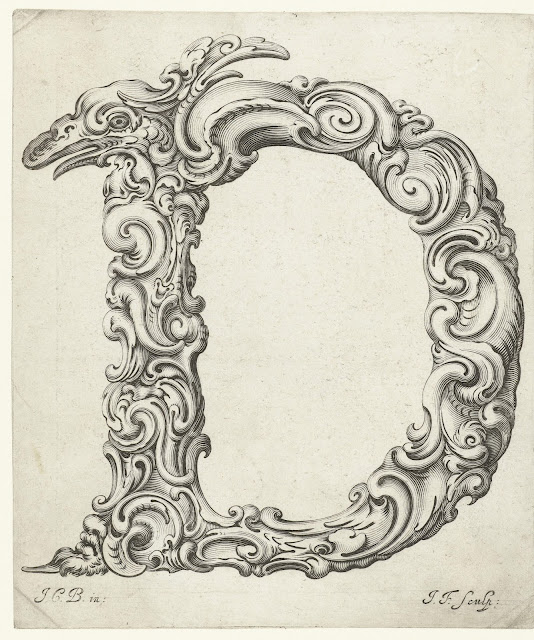 |
| ... is for |
Danish Design
There's a generous smattering of C20th Danish Design to be found around the Pipistrello Casa, and fulsome as we are in our appreciation of the marvellous stuffs the Kingdom of Denmark produces, it is notwithstanding our never once visiting this diminutive and interesting land, nor any of its Nordic neighbours. I know! ...
 |
| Copenhagen's be-flagged Tower of Christiansborg Palace, a.k.a. Borgen* |
Why it is that we, and Australians in general, have such a love affair with things Danish? And I speak not just of the delicious breakfast pastries and butter and feta and cheesy whatnots. It's true that the residents of this faraway land make gorgeous and useful things, (and fabulous drama for the telly), but bonus points must go toward Our Mary one day being their Queen. Isn't she just lovely?
Behold some Mary Magic:
 |
| Gala-ed up in 2017 in rubies and caped splendour (And so complementary with the FWH Wallpaper) |
 |
| On hat duty for last weekend's Flag Day in Copenhagen |
But with regard to the subject at hand, viz. Danish-Designed Doodads, prithee, Dear Reader, step this way for some long-lived lovelies, notable for being heavy on the Bang & Olufsen stuffs:
My first mobile telephone (a stubborn refusal to own such ugly things was melted away one Xmas!):
 |
| Behold the B&O foray into 2G Mobile Telephonery, The <sob!> now-defunct "Serene" on her docking station |
 |
| After around a dozen years (!!) of petite clamshell service, Her beautiful wizardry now lives in Ornamental Retirement |
You've already met our beloved Belgian Bakelite telephone, but here are her young Danish cousins:
 |
| With bonus D-is-for Daffodils |
 |
| Umm, yup, another one, Propping up a shelf of To-Be-Reads |
Yes, three telephones for two people in this day and age does seem to be, ahem, excessive. A bit like the Sewing Machine Situation (and I have some news on that mini mania - there's now a Clare!)
And of course, what landline/s is/are complete without an Answering Machine?
Lo! There is also some audio joy, going strong since Mr. P's 40th birthday :) :
But for another more low-tech Doodad (and I shall not provide a pic of the Danish Art Deco sideboard as I know not the designer's name and besides, the telly sits atop and thus makes for a prosaic composition):
 |
| A rather more thrilling midcentury Raadvad Bread Guillotine, For your rye-bread slicing needs |
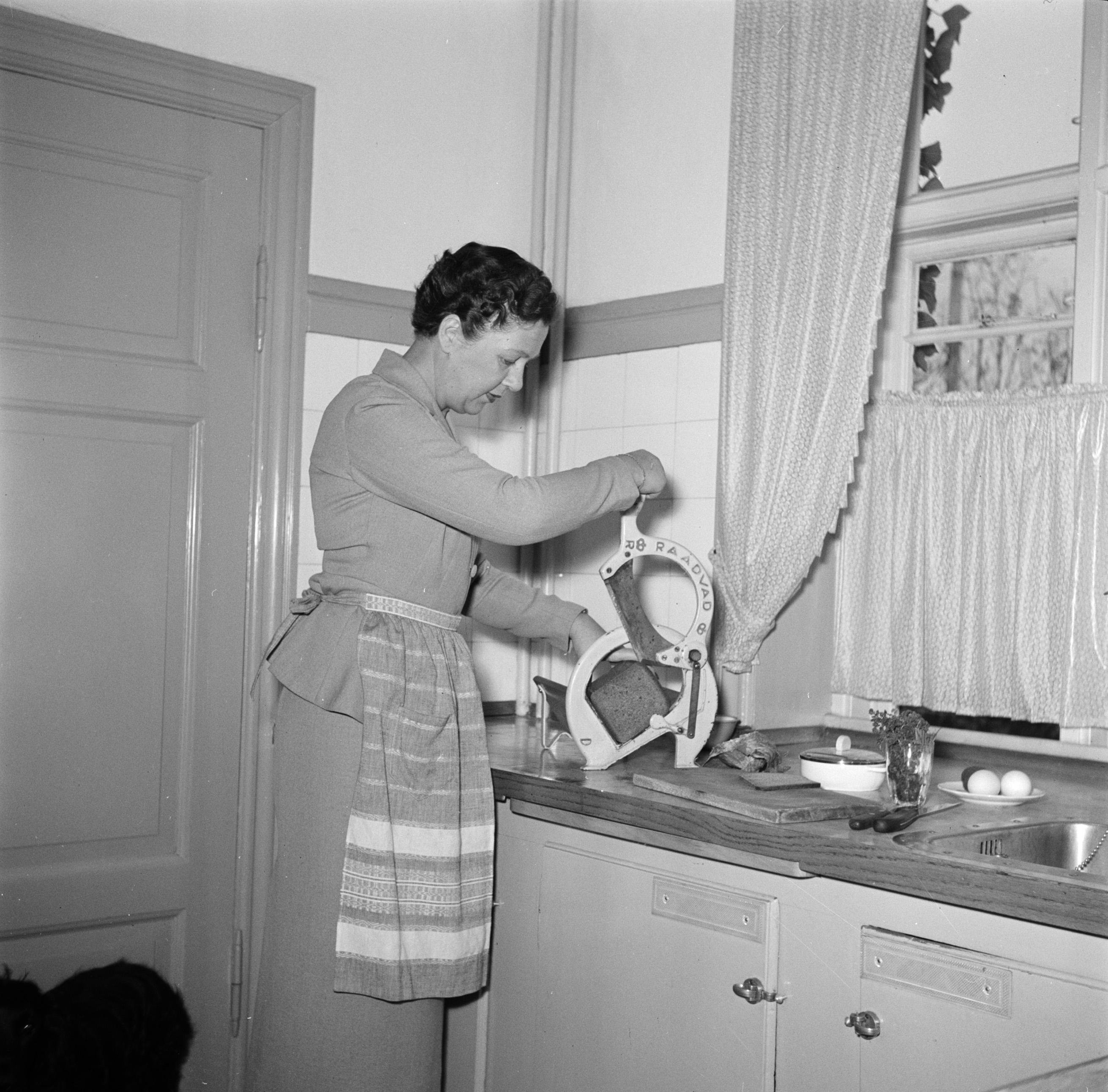 |
| Today's Flying With Hands model Demonstrating the Raadvad's utility |
And for something somewhat larger but still proximate to the roost, we have the fruits of the creative genius of just one of Denmark's famous architects, viz. Jørn Utzon:
 |
| No prizes for guessing |
 |
| That I speak of the Sydney Opera House |
 |
| From which these various vantage points |
 |
| Show somewhat less than the usual throngs of pedestrians |
 |
| Who at times recently |
 |
| Were often outnumbered by these perambulators |
Monday, 23 August 2021
I'm Not Gone, I'm Just Thinking ...
... About matters of no special significance.
For inst.: the very large number ten duotrigintillion (10^100) a.k.a. googol has no special significance (in mathematics), according to Mr. Wiki.
The term googol has been around as a handy shorthand for the mind-bogglingly-big number for a century now but I've only now taken a pause to consider the cultural side of this, courtesy of a weekend binge-watch of the old telly chestnut from 1981, The Hitchhiker's Guide to the Galaxy, wherein the Even Bigger Number googolplex (10^googol) makes an appearance. Viz:
"And are you not", said Fook, leaning anxiously forward, "a greater analyst than the Googleplex Star Thinker in the Seventh Galaxy of Light and Ingenuity which can calculate the trajectory of every single dust particle throughout a five-week Dangrabad Beta sand blizzard?"
Douglas Adams, The Hitchhiker's Guide to the Galaxy, 1979
Mr. Douglas Adams, of course, was a man of wit and was fully expected to be making merry whimsy with big numbers when he thunk up the Googleplex Star Thinker. And yet ... the makers of our oft-quoted friend around these pages, who'd each be of the geeky variety, if imagination serves me correctly, maintain that it was a mere misspelling when they coined the name Google in 1997 (whence came their Mother Ship Googleplex) and not a tipping of the hat to Mr. Adams.
Perhaps these geeky inventors had never read or heard of The Hitchhiker's Guide? Hmmm ...
And another matter of NSS: Mr. Wiki's entry on Mr. Adams speaks fulsomely of his attractions to Apple Inc. and its Macintosh, (and thus a man after Mr. P's heart), and was indeed one of their celebrity endorsers, but also references his once owning an Apricot computer. Hullo, now!
Your Correspondent, as may have been mentioned, studied Computer Science & Pure Mathematics at University around the time the Personal Computer became a thing. [Commodore 64, anyone?] For those students with luxe taste and the pesos for such things, the highly desirable PC was the 1984 Apricot, made by the British firm, Applied Computer Techniques.
But it was the introduction around then of Graphics as a new subject that shoe-horned the Apple Macintosh into my university's quaintly-named Computer Room, housed within a specially-installed glass cubicle and chained to desks.
Those Graphics students (not Pipistrello) gained supervised entry to what was otherwise locked away from the grubby mitts of those who sneered at the beige boxes, while making this forbidden fruit yet somehow more desirable.
Ah, Marketing ...
And yet, InfoWorld Magazine wrote glowingly at the time of the Apricot being "clever, inventive, cosmetically attractive and easy-to-use" and "Apricot's manuals are all beautifully printed and very well written. They even have stylish white-metal spiral bindings. The people at ACT are relentless in their concern for detail!" ... A Manual?!!
The Apricot. A completely different animal to the fruit of Apple's loins.
 |
| Adriaen Coorte shows us what's desirable Still Life with Five Apricots, 1704 |
Image credit: 1: via GIFER; 2: Mauritshuis, The Hague
Thursday, 29 July 2021
Alberta Comes In From The Wilderness
 |
| A leavening read After the recent engrossing immersion into the Age of Enlightenment |
Bertie, the six-year-old prodigy in Alexander McCall Smith's 44 Scotland Street series, starts school in Book 2. He's a dear little character. While his mother has him destined for great things, he's not shaping up to be popular. But it's heartening to know that Alberta, his feminised name form, may becoming more fashionable after decades in the Classic Names Wilderness. Apparently, Alberta is a jazzy old name.
For English-speakers, feminising names can be rather hit and miss. Just sticking an 'a' or an 'ina' or suchlike on the end doesn't automatically work, for either an attractive ring or timelessness. There's an old-fashioned-ness to most and some just don't sound as if they'll ever cut the mustard for future generations. You can't really imagine a Kennethina rising through the ranks on the Starship Enterprise.
| Beam me up, Kennethina! |
Some Saints' names work nicely: Paul generously gave us Paula, Pauline & Paulina; ditto various Kings: Alexander begets Alexandra; Henry begets Henrietta. Some feminised names lower in the popularity stakes sound a bit posh as a result: viz. Nigella, Edwina & Thomasina. Very Sloaney Pony.
Bertie's classmates in his Steiner School include Merlin and Tofu. Merlin could feasibly beget Merlina, but Tofu sounds firmly gender-neutral to me.
Image credits: 1: Flying With Hands; 2: www.Rabittooth.com






